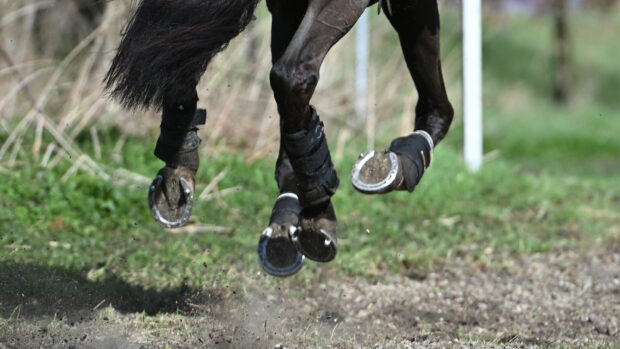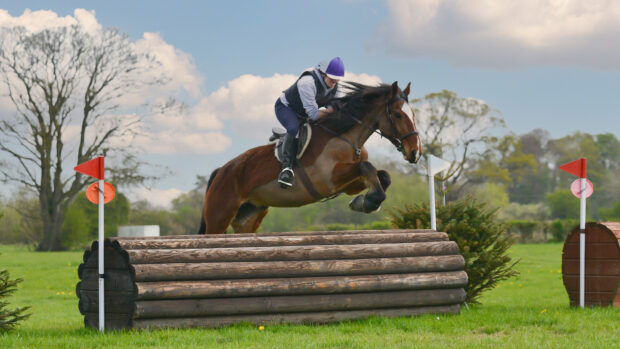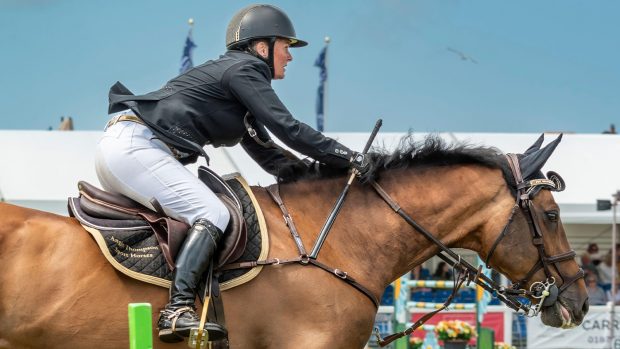More calls have been made to use available data to improve eventing safety – as it is important for the sport “now more than ever”.
Researchers behind three of the largest eventing safety studies have produced a follow-up paper summarising their findings and asking, “What will happen next?” The studies looked at risk factors for cross-country falls (news, 21 October 2021), fence and course design-related risk factors for cross-country falls in FEI competitions (news, 11 August 2022), and falls in one-day British Eventing competitions (news, 30 March).
Based on the findings, some of the recommendations included creating risk profiles for riders and cross-country courses, continuing to regularly review minimum eligibility requirements and introducing a dressage penalties cap.
Euan Bennet of the University of Glasgow worked on all three studies and told H&H that “now more than ever” it is important to continue looking at ways to make eventing safer.
“Social licence is such a big topic, and we think there are ways to bolster the sport’s social licence. Governing bodies need to be seen to be acting, and we think there are great opportunities to progress in making the sport safer, but also in a way that’s visible – and that helps people to see everything is being done to protect the horses,” he said.
“Adopting evidence-based risk management has been done in other sports such as endurance and racing, so we don’t think we’re asking for anything too radical.”
Dr Bennet added that he is hoping for further engagement with the FEI and British Eventing (BE), and it would be “great to see” more of the recommendations put into practice.
“We don’t want it to seem like we’re saying the sport should stop existing; we don’t want that to happen,” he said. “What we want is to make the sport as safe as possible and make sure it remains acceptable to the public.”
Geoff Sinclair, chair of the FEI risk management steering group, told H&H the steering group and the eventing committee are “continuously working to minimise risk and optimise the safety of athletes and horses”.
“Emphasis is put on reducing horse falls, especially rotational falls and serious or fatal injuries for horse and rider,” he said, adding that since 2000 “a lot of progress has been made” in regards to safety and that the number of falls has “significantly” reduced from 1.73% of starters in 2011 to 1.18% in 2022.
Mr Sinclair said in relation to the recommendations, the eventing committee has reviewed – or is reviewing – qualifications, athlete categorisations, jumping penalties in short-format competitions, the Horse Form Index which tracks cross-country performance, a guide for officials, particularly course-designers and course-builders, and statistics on horse falls.
He said changes to qualifications brought in for 2023 have “eliminated some of the combinations that are more at risk” especially at four- and five-star level where the horse fall percentage on starters is higher. Four- and five-star minimum eligibility requirement (MERs) are under review for potential changes in 2024 in regards to cross-country penalties.
“The FEI also has plans to commence a retrospective study on eventing horse fatalities and career-ending injuries,” he said.
“New initiatives are always welcome to be part of the process to evolve and improve [safety]. The FEI has provided its extensive data to studies such as these and we thank this group for putting their own investigation forward, so we can all weigh the initiatives that will support the progress of reducing risk in future.”
BE national safety officer Jonathan Clissold has worked with the researchers and told H&H that in-depth analysis of FEI and BE data often comes up with some “interesting points, some of which we expect and some we do not”. He added that some of the recommendations have been covered by rule changes around MERs and continual performance requirements, “although not necessarily as a direct result of the research”.
“I am sure that BE would be supportive of any of the research that the group is recommending. However, the FEI – as the world-governing body of the sport – is in the best position to support and look at this work on an international basis,” he said.
You might also be interested in:

Eventers with poor dressage scores could be blocked from cross-country, as 16 horse fall risk factors identified

Eventing risk profiles could help reduce cross-country falls

Risk profiles for cross-country courses could be on the cards thanks to new research

Subscribe to Horse & Hound magazine today – and enjoy unlimited website access all year round
Horse & Hound magazine, out every Thursday, is packed with all the latest news and reports, as well as interviews, specials, nostalgia, vet and training advice. Find how you can enjoy the magazine delivered to your door every week, plus options to upgrade your subscription to access our online service that brings you breaking news and reports as well as other benefits.




